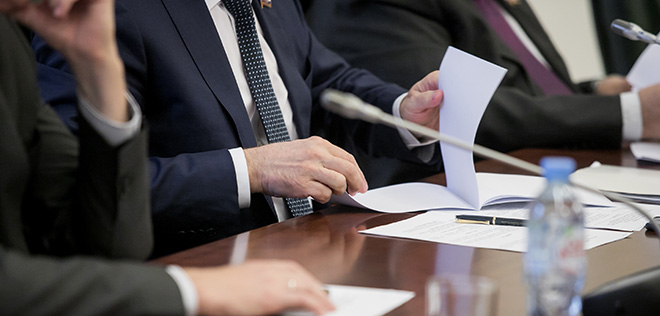Re-elected representatives secure parties more seats in municipal executives

According to a recent study, political parties with more re-elected incumbent representatives fare better in coalitional bargaining. Incumbent representation is particularly useful when a party is in a disadvantaged position or when the bargaining environment is more complex.

A new study by Jaakko Meriläinen (Instituto Tecnológico Autónomo de México) and Janne Tukiainen (University of Turku, VATT Institute for Economic Research) shows that experienced politicians improve parties’ prospects in bargaining for political nominations. Based on Finnish municipal election data, the study reveals that having more re-elected incumbents in municipal council helps parties get more municipal board seats than their council seat shares would indicate.
Municipal boards have important preparatory role in municipal decision making. While the composition of these municipal executives should reflect the electoral outcome of the council elections, there is some room for bargaining.
- Our study does not reveal the mechanism for this incumbency advantage, but possible reasons include inter-party networks and trust that incumbents may have built, and negotiation skills acquired while in office, states Jaakko Meriläinen.
The analysis suggests that incumbent representation is particularly useful when a party is in a disadvantaged position, for example, when the party is ideologically distant from the other parties, when there are several parties elected to the municipal council, or the bargaining environment is otherwise more complex.
Moreover, the study indicates that municipal executive formateur is more likely to come from a political party with more re-elected incumbents.
- Incumbents’ bargaining advantage also matters for political selection: Using a regression discontinuity design, we demonstrate that it is the incumbents themselves that tend to get the extra board seats that the party gains, adds Janne Tukiainen.
The study combines data on candidates, electoral results, and post-electoral bargaining for four elections during the years 2000 to 2012. The Finnish local elections use proportional representation system with pure open lists which creates close within-party elections between incumbents and non-incumbents. In Finland, municipal elections are held every four years at the same time in all municipalities across the country.
Additional information:
Jaakko Meriläinen, Assistant professor, Instituto Tecnológico Autónomo de México. Tel. +52 55 8232 7639. jaakko.merilainen(@)itam.mx.
Janne Tukiainen, Professor, University of Turku; Associate Research Professor, VATT. Tel. +358 50 308 3620. janne.tukiainen(@)utu.fi.
Publication:
Jaakko Meriläinen and Janne Tukiainen (2021) The Advantage of Incumbents in Coalitional Bargaining. Discussion paper No. 137. Aboa Centre for Economics.
Janne Tukiainen
Local public finance and provision of public services
Municipalities and wellbeing services counties
Press release
Uutiset ja tiedotteet
local democracy
municipalities
regional policy

